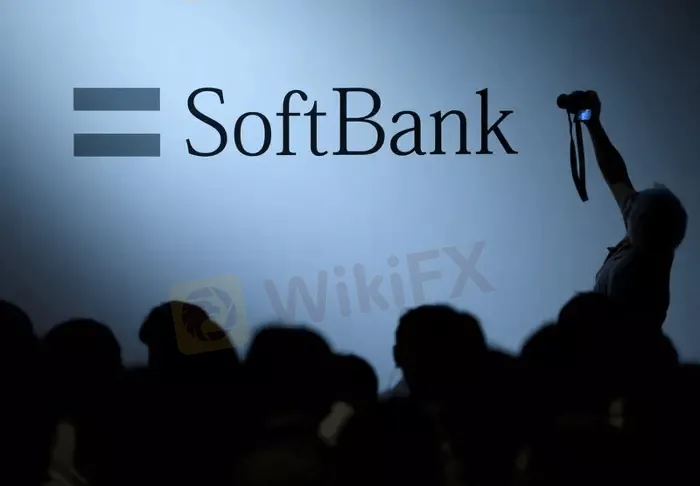简体中文
繁體中文
English
Pусский
日本語
ภาษาไทย
Tiếng Việt
Bahasa Indonesia
Español
हिन्दी
Filippiiniläinen
Français
Deutsch
Português
Türkçe
한국어
العربية
SoftBank posts record $23 billion net loss on Vision Fund pain
Abstract:SoftBank Group Corp on Monday posted a 3.16 trillion yen ($23.37 billion) net loss in the April-June quarter.

SoftBank Group Corp unveiled a $23 billion quarterly net loss on Monday, its biggest ever, as a market sell-off upended tech stocks and shredded valuations at its sprawling Vision Fund unit.
The pain in the April-June quarter comes fresh after the closely watched Vision Fund posted a record $26 billion loss in May, when rising interest rates and political instability disrupted global markets, and could test investor willingness to stomach further big losses.
SoftBank founder and CEO Masayoshi Son has already pledged to tighten investing criteria and preserve cash to ride out the downturn and on Monday he signalled cuts to headcount at the Vision Fund, saying there were no “sacred areas”.
“The world is in great confusion,” Son told a briefing after the release of the results, remarking on the tech sell-off. But he acknowledged the company had invested in more start-ups than it should have and that valuations had been “in a bubble”.
SoftBank also said it had authorised a share repurchase programme worth up to 400 billion yen, something that could assuage investors.
Overall, the sliding portfolio pushed SoftBank to a 3.16 trillion yen ($23.4 billion) net loss in the latest quarter – its largest loss ever. That compared with profit of 761.5 billion yen in the same period a year earlier.
The Vision Fund unit saw a $23.1 billion hit in value.
Listed investments that suffered a fall in value included robotics firm AutoStore Holdings Ltd and artificial intelligence firm SenseTime Group Inc.
SoftBank said it wrote down the value of unlisted assets across its two Vision Funds by 1.14 trillion yen. Analysts have said writedowns of these private assets were unlikely to reflect the extent of current market weakness.
To raise cash, SoftBank has exited companies including ridehailer Uber Technologies and home-selling platform Opendoor Technologies, for a total gain of $5.6 billion.
SoftBank sold Uber at an average share price of $41.47, compared to the Friday closing price of $32.01.
The second Vision Funds stakes in 269 firms were worth $37.2 billion at end-June, compared with an acquisition cost of $48.2 billion.
Plunging initial public offering volumes and market scepticism towards money-losing startups have squeezed an important source of capital for SoftBank, which hopes to list chip designer Arm following the collapse of a sale to Nvidia.
SoftBank hasnt been the only casualty of the tech sell-off.
Hedge fund Tiger Global, which competes with “unicorn hunter” Son on deals, saw its flagship fund fall 50% in the first half of the year after it underestimated the impact of surging inflation on markets.
Berkshire Hathaway booked a $44 billion quarterly loss on its investments and derivatives, with Chief Executive Warren Buffett urging investors to ignore the fluctuations.

Disclaimer:
The views in this article only represent the author's personal views, and do not constitute investment advice on this platform. This platform does not guarantee the accuracy, completeness and timeliness of the information in the article, and will not be liable for any loss caused by the use of or reliance on the information in the article.
Read more

Why More People Are Trading Online Today?
Discover why online trading is booming with tech, AI, and a push for financial freedom. From stocks to crypto, it’s a thrilling hustle for all.

Bitpanda Secures Full Broker-Dealer License in Dubai
Bitpanda has officially obtained a full broker-dealer license from the Dubai Virtual Assets Regulatory Authority (VARA), marking a significant milestone in its international expansion. This approval, which follows preliminary authorization granted three months earlier, enables the European digital asset exchange to introduce its comprehensive suite of virtual asset services to investors in the United Arab Emirates (UAE).

RM457,000 Forex Fraud: Court Grants Conditional Release, Is Justice Delayed?
A Malaysian magistrate’s court has issued a discharge not amounting to acquittal (DNAA) for two former directors of an investment company implicated in a forex investment fraud case involving RM457,735.50.

Interactive Brokers Expands Crypto Trading with Solana, XRP, Cardano, and Dogecoin
Interactive Brokers adds Solana, XRP, Cardano, and Dogecoin to its platform, enabling U.S. and U.K. clients to trade crypto 24/7 with low fees.
WikiFX Broker
Latest News
Enlighten Securities Penalized $5 Million as SFC Uncovers Risk Control Failures
Why Are Financial Firms Adopting Stablecoins to Enhance Services and Stability?
Experienced Forex Traders Usually Do This Before Making a Lot of Money
Octa vs XM:Face-Off: A Detailed Comparison
When High Returns Go Wrong: How a Finance Manager Lost RM364,000
Bridging Trust, Exploring Best—WikiEXPO Hong Kong 2025 Wraps Up Spectacularly
Interactive Brokers Expands Crypto Trading with Solana, XRP, Cardano, and Dogecoin
Fidelity Investments Explores Stablecoin Innovation in Digital Assets Sector
Why More People Are Trading Online Today?
SEC Ends Crypto.com Probe, No Action Taken by Regulator
Currency Calculator







